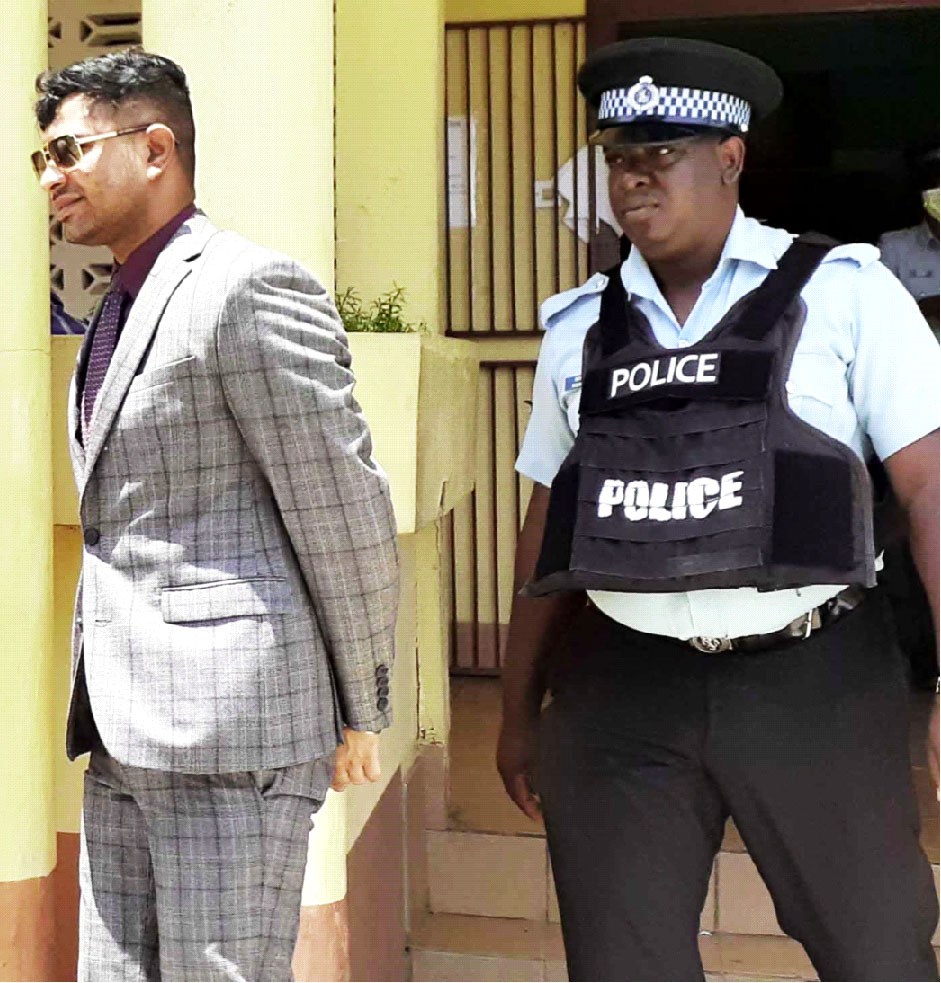Murder accused Marcus Bisram has approached the High Court to challenge orders from the Director of Public Prosecutions (DPP) instructing that he be committed to stand trial.
He is arguing that the DPP’s decision is “unreasonable, unlawful and malicious,” and wants the Supreme Court to make declarations to this effect.
The matter will be heard next Monday before Justice Simone Morris-Ramlall.
Late last month, Magistrate Renita Singh ruled that she did not find sufficient evidence to commit Bisram to stand trial for the capital offence, but she was subsequently directed by the DPP to reopen the PI and proceed with the committal.
Section 72 (2) (i) and (ii) (a) and (b) of the Criminal Law Procedure Act, Chapter 10:01, empowers the DPP to so act.
The charge against Bisram alleges that between October 31, 2016 and November 1, 2016, at Number 70 Village, Corentyne, he counselled, procured and commanded Harri Paul Parsram, Radesh Motie, Niran Yacoob, Diodath Datt and Orlando Dickie to murder Faiyaz Narinedatt.
Magistrate Singh discharged Bisram on March 30, but he was rearrested the same afternoon after the DPP wrote the Magistrate and directed that she reopen the PI and commit Bisram to stand trial.
The Magistrate subsequently reopened the inquiry but stuck to her ruling that there was insufficient evidence to commit Bisram to stand trial. She, however, committed him to stand trial.
In his action before the High Court, Bisram is seeking an order of certiorari quashing the DPP’s decision as he contends that it was made in bad faith, ignoring relevant considerations, is ultra vires, contrary to the rules of natural justice and made without any legal basis.
Through his attorney, Sanjeev Datadin, Bisram is also seeking an order prohibiting Magistrate Singh from taking any steps regarding the charge against him based on the DPP’s instructions, except to discharge him.
He is arguing that his constitutional rights guaranteed in Article 144 of the Constitution have been breached and continue to be breached and that his arrest and continued incarceration are unlawful.
The Article states “If any person is charged with a criminal offence, then, unless the charge is withdrawn, the case shall be afforded a fair hearing within a reasonable time by an independent and impartial court established by law.”
Bisram is also seeking vindicatory damages against the DPP, Magistrate Singh, the Commissioner of Police, the Attorney General and State Prosecutor Stacy Goodings, who are all listed as respondents.
He is contending that they have no lawful reason to have detained him and is hoping for an order from the court compelling them to release him forthwith.
He also wants to be granted any further order the court deems just and equitable to grant as well as costs.
Following Magistrate Singh’s announcement that she had received directions to commit Bisram, which she said she would comply with as the order was clear, Datadin announced that he had filed High Court proceedings on his client’s behalf and asked the Magistrate to grant a stay until those matters were heard and determined.
This was, however, not granted.
Goodings had pointed out that there was no order or judgment from any other court compelling the Magistrate to grant the stay.
Magistrate Singh had stressed that, “The only direction this court has is what is from DPP” and that there was no other order stating that the court could not comply with the DPP’s order.
The Magistrate noted, that without any other order or stay she would not disobey the DPP’s order, “therefore the accused is hereby committed for the offence he is charged.”
Last September, Bisram was extradited to Guyana from the United States after fighting extradition for over two years.
He was finally returned after a US appeals court ordered that he be extradited after denying both a rehearing of his appeal arguments and a motion to stay the extradition.






